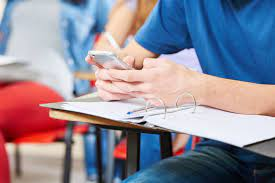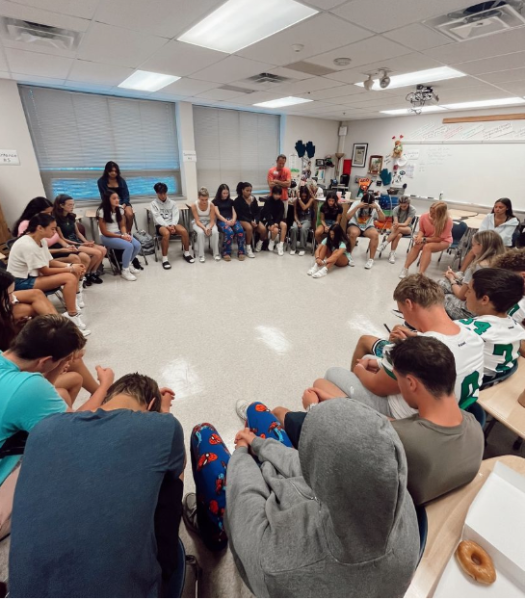FCPS Phone Policy

Image via encrypted
As of June 2022, FCPS updated their cell phone policy in the SR&R for grades K-12. While the rules differ between grade levels, the general consensus is that phones should be away throughout the majority of the school day.
After Covid struck in 2020, the growing dependence students had on their electronics shot up. Schools have already struggled keeping kids off their phones throughout the school day, so the policy aids teachers with this tiring task. The goal was to create more focus within school, but with how attached kids have become to their phones, could it be having the opposite effect?
The rules for each grade level are as follows:
K-6: “Phones must be silenced and in backpacks for the duration of the school day.”, “Teachers may allow usage of cell phones for instructional activities when appropriate. Cell phones may be used on campus before and after school only.”
7-8: “Phones must be silenced and kept put away for the duration of the school day.”, “Teachers may allow usage of cell phones for instructional activities when appropriate. Cell phones may be used on campus only before the first bell and after the last bell.”
9-12: “Phones must be silenced and put away during all instructional periods.”, “Teachers may allow usage of cell phones for instructional activities when appropriate. Cell phones may be used on campus before the first bell, after the last bell, during passing periods, and lunches.”
On the surface, this policy isn’t immensely different from past year—except for the stricter regulations on middle school—however, on top of phones the same restrictions apply to smart watches or any other devices aside from school laptops. Board members believe this will better not only decrease stress but increase mood as they conclude that social media can cause students to feel desolate.
Within the first week of school teachers were to inform students of the changes as it was part of their job to oversee this rule first hand. Teachers who aren’t enforcing the policy risk getting in trouble with admin and potentially the board, so regardless of how the teachers feel they still have to instruct students to keep their phones away.
So how do the students feel about this as they are the ones affected by the policy? The reactions have varied for a multitude of reasons between those finding benefits and those upset with the newfound strictness within the school. However, the subconscious knowledge of having your phone taken away has produced results the school board wanted, no matter how happy students are about it. Students who used to be common offenders of the old phone policy no longer have the same lenience, creating a phone free space within classrooms but that doesn’t always mean more focus.
So whether you appreciate or disparage it, the phone policy is performing how it was expected, at least on paper, and is here to stay.
Grayson Quigley is a Junior at South Lakes and a first year journalism student. He’s excited to join the Sentinel as a Staff Writer. He enjoys reading...

















